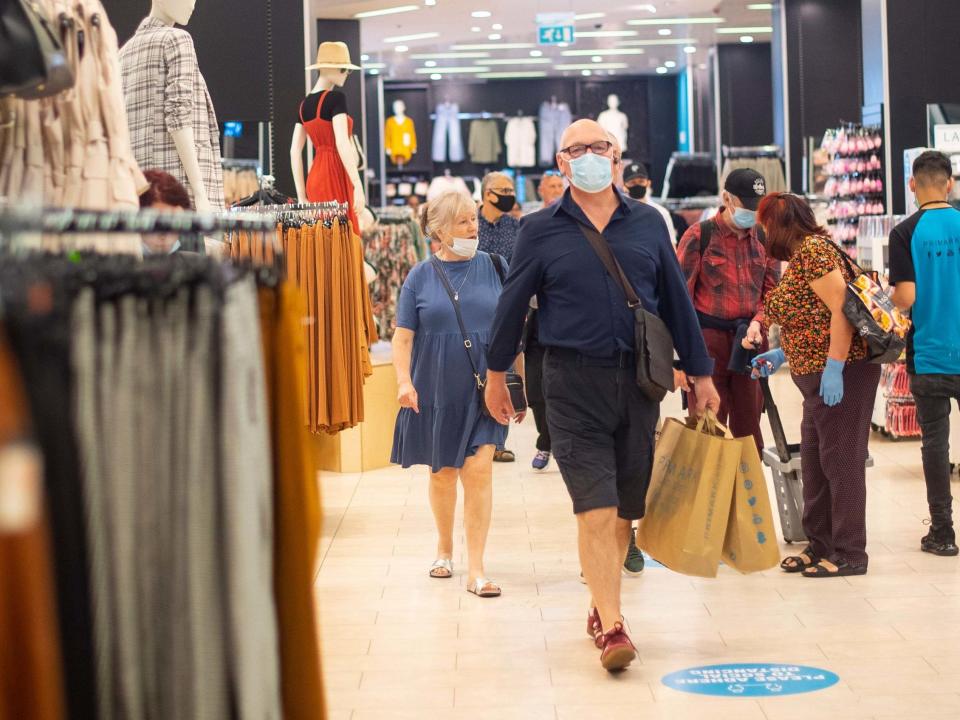UK economy shrinks by a quarter during lockdown

The UK economy grew 1.8 per cent in May but has shrunk by a quarter since the coronavirus pandemic began, official figures show, as the government’s budget watchdog warned GDP may not recover until 2024.
The small rise in May was well below economists expectations of a 5 per cent recovery, with activity remaining subdued despite lockdown restrictions beginning to ease.
Manufacturing and housebuilding began to recover as workers returned to work during the month, the Office for National Statistics said.
However, manufacturing remained 22.3 per cent below its level in February. The vital services sector, which makes up more than three-quarters of Britain’s economy, is 24.2 per cent down.
Overall economic output was 24.5 per cent down, leaving the UK on track for its deepest recession in more than a century.
The Office for Budget Responsibility said it assumes that GDP for June will be 20 per cent below February’s level.
It said it therefore expects that output will have fallen 21 per cent in the second quarter of the year, leading to a 14.3 per cent contraction for the full year.
The numbers suggest that hopes the country will rapidly bounce back from its record slump may prove to be overoptimistic.
Last month, the Bank of England revised up its forecast for the UK economy in after more positive signs of recovery in a number of early indicators.
Jonathan Athow, deputy national statistician at the Office for National Statistics (ONS), said of the May economy figures: “Manufacturing and house-building showed signs of recovery as some businesses saw staff return to work.
“Despite this, the economy was still a quarter smaller in May than in February, before the full effects of the pandemic struck.
“In the important services sector we saw some pick-up in retail, which saw record online sales.
“However, with lockdown restrictions remaining in place, many other services remained in the doldrums, with a number of areas seeing further declines.”
Online retailers enjoyed record growth of 12 per cent in May but that was not enough to make up for lost high street sales.
Non-essential retailers reopened their doors from 15 June, prompting a bounce in spending, according to the British Retail Consortium (BRC).
“Despite footfall still being well below pre-coronavirus levels, the average spend was up as consumers made the most of their occasional shopping trips,” said Helen Dickinson, chief executive of the BRC.
Tom Stevenson, investment director at Fidelity International, said: “Hopes of a V-shaped recovery are fading fast, and I suspect we’re looking at something resembling far more of a ‘W’ – a series of improvements and relapses, before a proper recovery takes hold.
“Pent-up demand among consumers suggests that we may see some spikes in activity as shops and restaurants reopen, flights resume, and workers continue their gradual return to the office. However, this upwards trajectory may be flatter and the recovery take longer than we hoped. It is one thing opening up, another persuading consumers to return to their old ways.”
The chancellor announced a £30bn package of measures last week aimed at preventing a catastrophic rise in unemployment as the Job Retention Scheme comes to an end.
But economists questioned whether the plans, which include a £1,000 bonus for each furloughed employee kept on until January, would be enough.
Rishi Sunak also cut VAT for hospitality businesses from 20 per cent to 5 per cent and offered diners 50 per cent off meals at restaurants in August.
Labour criticised the approach which it said did not deal with the fears of millions of Britons that Covid-19 is not yet under control.
Data collected by research firm Kantar suggest that health fears, rather than financial worries, are the key barrier to getting people to return to shops, pubs and restaurants.
It interviewed 100,000 people across dozens of countries and found that only one-quarter of consumers said they will return to normal consumer activity as soon as government restrictions are lifted.
Read more
Should Rishi Sunak have done more to support the economy?
What is the £500 ‘high street voucher’ scheme and how would it work?
Young people working in hospitality and retail ‘face jobs crisis’
Is the UK economy heading for a V-shaped recovery?
UK economy suffered largest fall since 1979 in first quarter

